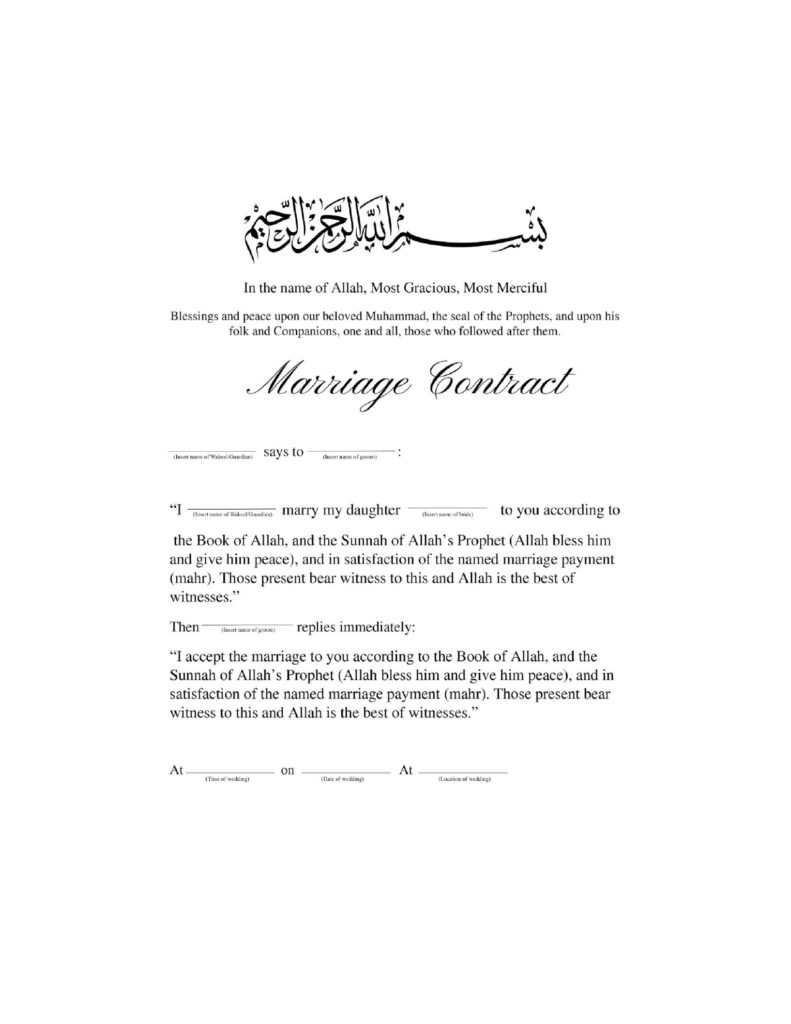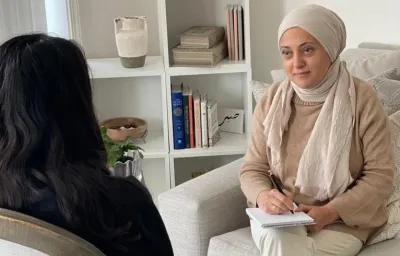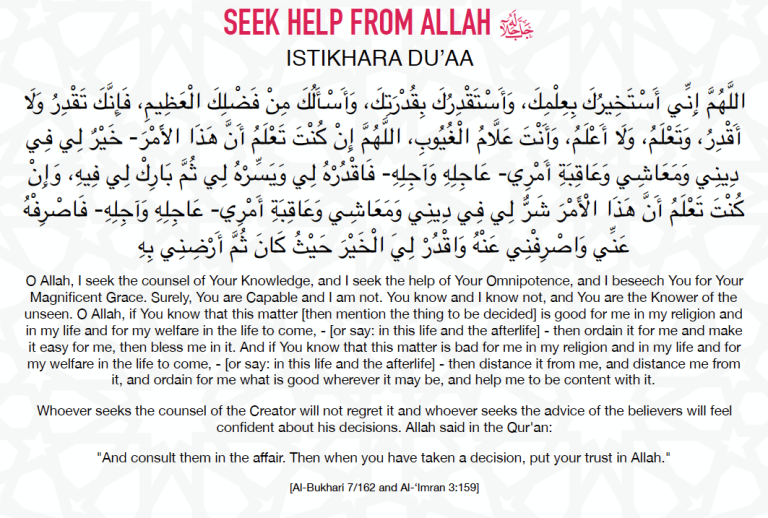Thank you for inviting us to be a part of your special day!
Congratulations on your engagement! We’re excited that you’re considering MCC East Bay for your Nikah and wedding plans. We will guide you through your wedding service at our mosque. We believe it celebrates your love and commitment to each other and God.
Plan Your Special Day
In Islam, a Nikah (marriage ceremony) is a covenant with God to honor, respect, care for, and love your spouse; it is a legally binding contract. The MCC East Bay is honored to celebrate this blessed occasion with you.
Qari Amar Bellaha will solemnize your Nikah (known as Katb El-Kitab or Aqd). You can request the ceremony at MCC, at your venue, or online via Zoom (an option open only for East Bay Muslim community members). As a personal choice, Qari Amar does not perform interfaith marriage ceremonies. Both parties must be Muslim.
MCC’s Nikkah services are only open to residents of the San Francisco Bay Area. For national and international online Nikah services, please see here and here. For quarterly matrimonial events at MCC for single Muslims, see here.
Ready to start?
For MCC to conduct a Nikah, please meet the following requirements:
- Bride and groom’s consent to marry
- Two Muslim witnesses (MCC can provide, with advance notice)
- Bride’s Wali (Guardian, i.e., bride’s father)
- Legal marriage documentation from any state in the U.S.
- If you are obtaining a marriage license from a nearby courthouse in the Bay Area, here are four counties near MCC: Alameda, Contra Costa, San Francisco, and Santa Clara. Please get in touch with your County Clerk’s Office for fees and requirements. Yolo County in Sacramento also offers walk-in visits; no appointment needed.
- Before scheduling your Nikkah at the MCC, we encourage the couple to complete this pre-Nikkah questionnaire together.
- Before coming in for your in-person or Zoom Nikkah, please complete this Nikkah form and agree on the Mahr (dowry).
- Qari Amar performs the Nikkah in his classroom, the MCC Hifz room. The classroom accommodates up to 15 guests. For more than 15 guests accompanying the bride and groom, MCC requires rental of the Conference Room for the Nikkah ceremony.
Please complete the Nikkah request form below only once you have made your appointment or received your county marriage license.
In addition to providing a religious wedding officiant, the MCC East Bay also offers facility rentals for your Nikah and a platform to help you find a spouse (available only to San Francisco Bay Area residents). For marriage services recognized by the Islamic Republic of Iran, please get in touch with ICCNC. The Islamic Center of San Francisco can also perform your Nikkah.
Couples are encouraged to read and watch:
- How to Perform Nikah: 11 Steps (with Pictures) – wikiHow
- Understand Your Emotional Needs (Via MCC Matrimonial Committee)
- Pre-Nikkah Questionnaire
- “Mahr” – The Marriage Gift”
- Qari Amar Officiates a Nikkah Ceremony at the MCC Masjid
- General Islamic Marriage Guidelines
- “Islamic Marriage Contracts Resource Guide” – Peaceful Families Project
- Islamic Ceremony Handbook – Halal Weddings
- “Like A Garment by Shaykh Yasir Qadhi”
- “Before You Tie the Knot”
- What Women Need to Know about Men | Shaykh Yasir Qadhi Seminar
- What Men Need to Know about Women | Shaykh Yasir Qadhi Seminar
- How to Propose in Islam & What is Mahr (Dowry) | Nouman Ali Khan
- Islamic Parenting Talks at the MCC
- Great Marriage Advice | Shaykh Hamza Yusuf
- How To Create A Healthy And Loving Marriage That’s Divorce-Proof
- Islamic Marriage Talks at the MCC
- Friday Evening Parenting Khatera (Reminder) with Shaykh Rami Nsour
- Modern Muslim Parenting with Ustadha Hosai Mojaddidi
- Islamic Marriage Vows
Please note that our standard Nikah ceremonies include chairs for 12 guests, last up to 30 minutes, and cannot be performed within 20 minutes before and after salah timings.
May Allah grant us nikkah without divorce, spouse without fitna, and healthy children without sickness. Ameen!
MCC East Bay Nikkah Service Request
Frequently Asked Questions:

Traditionally, the bride and groom do not exchange vows. The imam or officiant will often recite a chapter or a couple of verses from the Qur’an, the Muslim holy book, and give a short sermon, or khutba, sometimes about the meaning of marriage, the rights, and responsibilities of the husband and wife or a similar topic.
The Proposal
As with any marriage, someone has to propose for the Nikah process to start. The woman or the man can propose if the intention is to get married. While in many cultures, it is often more common for a man to propose, in Islam, the woman (or her family) can propose, as was the case with Khadijah, the first wife of the Prophet (peace and blessings be upon him).
The Acceptance
The qubool accepts the proposal, but you don’t have to say yes immediately. During the time between the proposal and the acceptance, the couple can meet as often as they like to get to know each other as long as the meeting takes place in public or within the proximity of a chaperone.
The Witnesses
For the Nikah, there has to be a minimum of two male witnesses who can attest to the fact that both the bride and groom say, “I do” or “Qubool” of their own free will and without any force from family members or anyone else. It must be the bride and the groom who agree.
The Mahr
The Mahr is an obligatory gift from the groom to the bride that the bride or her family can request. More often than not, the bride decides on a lump sum of money. Other times, the bride may ask for a trip, gold, or anything else she wishes, like helping her memorize a Surah (chapter) that her husband has memorized and she has not. Of course, she is encouraged to be fair and consider her future husband’s income. The Mahr is also symbolic of the man’s responsibility for providing for and caring for his wife.
The Wali
The Wali is usually the bride’s father who “gives away” his daughter. The Wali gets consent from the bride, but he does not give it on her behalf without asking her. If the father is deceased or there is some reason that he cannot “walk her down the aisle,” so to speak, then another male guardian or relative can take on that role. The Imam may also serve as the guardian in some cases.
The Nikah
Once all the requirements are met, anyone can officiate at the Nikah ceremony. The bride and groom repeat the word “qubool” or “I accept” three times. Then, the couple and the two male witnesses sign the contract, which the imam can provide, or the couple can get their own, making the marriage legal according to civil and religious law.
The Nikah ceremony is the Muslim marriage ceremony. In the Islamic tradition, the marriage contract is signed during the Nikah, and during this event, the bride and groom say, “I do.”
Traditionally, the Nikah ceremony often takes place in a mosque, and the leader or imam of the mosque officiates. Most couples will set up a time for the Nikah and invite family and friends to attend the ceremony. In the Islamic tradition, the Nikah is supposed to be as simple as possible so as not to burden the couple financially.
Nowadays, it’s also common to have the Nikah ceremony either at a venue or at the bride’s house, and depending on the family, the event can become quite glamorous as people tend to mix Islamic and Western traditions.
The Nikah is a religious ceremony for a Muslim couple to be legally wed under Islamic law. It’s a Prophetic tradition and the only permissible way that a man and woman can be married. This ceremony makes the wedding official because, in the Islamic tradition, it’s unacceptable for a couple to be intimate without a Nikah. The Nikah legitimizes the relationship before God when the couple says, “I accept.”
In Islam, the Nikkah is the traditional function of marriage. There are three components needed for a Nikah to be valid: a couple willing to marry each other, witnesses, and a wedding gift named mahr that the groom gives to the bride.
The most important thing among these is the mutual agreement between the bride and groom to get married. They should meet each other and talk before the Nikah arrangements begin. They should agree upon a dowry. It can be a sum of money, objects, or property, as the bride demands. It is a symbol of the groom’s commitment. It is decided based on the groom’s financial conditions.
There should be at least two adults as witnesses for the function. Usually, there is an Imam to perform the Nikah ceremony, and he guides the function.
The Nikah can be performed in a mosque or a wedding hall, depending on convenience, but a mosque is the preferred venue. The mosque is a blessed place to begin this new journey.
Before the Nikah function, obtaining a marriage license from the local county government is required in the U.S. Typically, there is an Imam who performs the ceremony and guides the function.
The Nikah in Islam is a straightforward occasion, as it is modeled after the example of the Prophet Muhammad (peace be upon him).
From Prophetic tradition, we know that the Islamic wedding was a simple ceremony with about 10 guests attending. Cultural expectations nowadays call for a ceremony that is extravagant and expensive. Also, the dowry or wedding gift demanded by brides in some Muslim-majority countries is sometimes so costly that the groom is unable to meet the demand. In other countries like India, the bride’s family needs to give the groom a dowry. In most cases, it is a considerable amount, making their life miserable, too. The Nikah ceremony these days is also an occasion for ostentation to show off, and people do not hesitate to spend lavishly on their ‘once in a lifetime’ event.
From invitation cards to wedding halls, splendid meals, and other wedding-related arrangements like dresses, ornaments, flowers, and more, people do not try to fit in a minimum but spend extravagantly. As it becomes a social trend, everyone must follow it and pay accordingly to maintain their social status and goodwill. This makes Nikah expensive and even unaffordable for many. That is a troubling departure from how things are supposed to be, according to the Islamic faith.
Aqd in Arabic means contract. Islam considers Nikkah to be a contract and not a sacrament. Even though in Islam, Nikah is a religious sanction for individuals to have sexual relationships to have children and live like a family, it considers marriage as a civil agreement entered into by two individuals or those acting on their behalf. And because it is a contract (‘aqd), it conveys legal rights and obligations to each spouse.
Islamic jurisprudence, as elaborated by various schools of legal thought, considers the primary purpose of the marriage contract to make intercourse lawful (halal) between a husband and wife and to legitimize any resulting offspring. Also, the marriage contract establishes further rights and duties for each spouse. They must treat each other well, and their rights and obligations are differentiated by gender. They are also interdependent: a failure by one spouse to perform a specific duty may jeopardize their claim to a particular right. They are required to treat each other well, and each person’s rights and obligations are differentiated by gender.
Yes. Many scholars have acknowledged that it is permissible to conduct a Nikah online as long as the usual conditions are met for a valid Nikah. They suggest no issue with conducting the ceremony online via Zoom, Skype, or other online mediums. According to the mainstream Sunni schools of thought, for a Nikah to be valid, what is necessary are the verbal acceptances from the bride & bridegroom, in the presence of witnesses, with consent from the bride’s Wali (legal guardian), and a Mahr (bridal dower) agreed beforehand.
It is to be noted that, during COVID-19 in 2020 and 2021, many renowned Muslim scholars, including Mufti Ismail Menk and Shaykh Hasib Noor, have taken to social media to encourage Nikah online, considering the emergency circumstances openly. This should be viewed as a wise suggestion and a feasible alternative for many Muslim couples because, otherwise, they have to delay their Nikah for many more months to have the guardian, the bride and groom, and the witnesses on-site. With the advanced technology at our disposal today, an online Nikah is a good suggestion for those who are far away. It is to be noted that, during COVID-19 in 2020 and 2021, many renowned Muslim scholars, including Mufti Ismail Menk and Shaykh Hasib Noor, have taken to social media to encourage Nikah online, considering the emergency circumstances openly.
A walima is the marriage reception function at a traditional Islamic wedding. It designates a feast in Arabic. Walima is a symbol that signifies domestic happiness in the household after marriage. Usually, walima takes place after the Nikah function and is hosted by the groom. The venue can be at the groom’s place or a selected location, such as a mosque, park, or hall. A Walima is a Sunnah, and it is just an event where the new couple mingles with their guests instead of sitting on the stage the entire time. There are no rituals or customs associated with Walima. The bride and groom enter together, walk down the aisle, sit on stage, sometimes cut a cake, and then mingle with the guests. It celebrates the happiness and joy within the family; the bride and groom must meet and introduce themselves to their dear ones.
What is the Nikah?
The Islamic marriage ceremony is of utmost spiritual importance. The couple sits in the presence of a Muslim cleric and two witnesses, one for the groom and one for the bride. The Imam recites verses from the Quran on the vital obligations for their marriage (similar to a “for sickness or health, for better or for worse” type of exchange). The Imam then recites a Dua (prayer), and both parties agree to the marriage. The family then read Surah Al-Fatiha to bless the marriage. Finally, the couple signs a binding contract that ensures their marriage is civil and legally recognized.
Depending on the couple, this event might be intimate or an elaborate affair with extended family and friends. Afterward, guests wish the new couple the best, and the couple usually hands out yummy sweets and the Islamic staple food, dates.
What is an Islamic marriage?
An Islamic marriage ceremony carries many names. Some call it a ‘nikah,’ and some call it a ‘kata al-kitab,’ but ultimately, these terms refer to the same concept. The essential component of a nikah ceremony is the offer and acceptance of marriage, which can be initiated by either the bride or the groom. The offer and acceptance are conducted in front of an audience that is comprised of at least two adult male Muslims. The imam oversees this process to ensure it takes place according to Islamic legal rulings. Once the offer is made and accepted, the couple is officially married. The Imam then closes the ceremony with a prayer.
Consent – The groom and the bride must each individually consent to the marriage verbally and in writing. This is done through a formal marriage proposal (ijab) and acceptance of the proposal (qabul). A first-time bride is usually represented in the contract negotiations by her wali, a male guardian who looks out for her best interests. Even so, the bride must express her willingness to marry. Consent cannot be obtained from those who are legally unable to give it, i.e., people who are incapacitated, minor children, and those who have physical or mental impairments that limit their capacity to understand and consent.
Requirements For an Islamic Marriage
❏ Mutual agreement (Ijaab and Qabul)by the bride and the groom
❏ Two Muslim adult male witnesses
❏ Mahr (marriage gift/dower) is to be given by the groom to the bride either immediately (mu’ajjal), or deferred (mu’akhkhar), or a combination of both
Examples of mahr
The mahr can be anything of value. Traditionally, the amount provided equals the amount the bride would require to meet her needs for a given period in the case of a divorce. That said, the mahr could be any agreed-upon amount. Most importantly, the mahr is the bride’s haqq or right. She can request any amount; the money will be given solely to her, not her family. The most common examples of mahr are cash and gold jewelry, but other examples are wedding rings, cars, jewelry, stocks, or any combination thereof. If it holds value, is legally permissible to own according to Islamic law, and is agreed upon by the bride and groom, it can be considered the dower.
The Wali (Guardian)
The wali is usually the father of the bride. If the bride’s father is unavailable or has passed away, another male mahram relative can act as the wali in their place. A mahram is a person from one’s family with whom marriage is forbidden, such as a brother, uncle, or grandfather. If one’s parents and family are not Muslim, then it is permissible for one to marry without the presence of a wali. This is acceptable to the Hanafi school of law.
The Ceremony
Depending on the Imam overseeing the ceremony, there is some flexibility in the actual performance of the marriage ceremony. The specifics can be tailored to meet the couple’s needs. In general, the ceremony proceeds as follows:
- Opening supplication
- Introduction to the Nikah ceremony
- Short khutbah (sermon) regarding the merits of marriage, including brief advice from the Quran and Sunnah for the bride and groom
- Recitation of the offer and acceptance
- Official pronouncement of marriage
- Closing prayer
Some Imams prefer to have a pre-marital counseling session with the bride and groom before the wedding. This ensures that the imam is doing his due diligence to ensure the bride and groom start their marriage on the right path.
In the case of multi-faith weddings or weddings with American converts to Islam, some people prefer to have a traditional Western marriage along with the nikah ceremony. Our imams know this and have developed ways to seamlessly incorporate a traditional Western exchange of vows and rings directly following the nikah ceremony. Please feel free to contact us for more details about this arrangement. The preferred course of action is to discuss the details with your Imam before the ceremony. Our imams are well-versed in Western traditions and are understanding of delicate situations such as weddings with converts and multi-faith couples in which many or even most of the audience members are non-Muslim.
Islamic Ceremony Locations
There are no direct stipulations regarding the location of the Nikah ceremony. You can have your wedding at the mosque, a wedding hall, a restaurant, or even at home.
Bride and Groom (Different Religions)
According to Islamic law, it is permissible for a Muslim male to marry a female who is either Muslim or from the ‘people of the book.’ The scholars note that the people of the book include both Christians and Jews. It is not permissible for a Muslim woman to marry a non-Muslim man.
Bride and Groom (Different Cultures)
A commonly asked question is whether it is permissible for a man and a woman of different ethnicities and cultures to marry. The answer is absolutely yes. That said, children should be aware of the preferences and expectations their parents may have for them regarding their future spouse, and parents should have open discussions with their children about this. Ultimately, it is entirely permissible to marry anyone from any given cultural or ethnic background as long as they meet the requirements listed above.
When should someone convert or perform shahadah?
Converting to Islam is an internal realization and affirmation of the Oneness of God and the reality of the Prophet Muhammad as the last and final messenger of God. This affirmation is verbally explicated by uttering the words of the shahada, or the testification of faith. It is done publicly to apprise the greater community that one is now a Muslim and is deserving of the rights that a Muslim has upon his/her fellow brothers and sisters in faith, such as the right to a Muslim burial and funeral prayer.
The process involves having the individual verbally repeat the words of the shahada, which testifies to their faith. This can be done in a separate room or right before the Nikah, but in front of everyone. Logistically, the Imam will walk the person through the process of what they had to say, and they will ask them to confirm that they are converting of their own free will, purely for the sake of believing in and worshiping God.
Please note: One should utter the shahada as soon as one has internally arrived at conviction in the truth of Islam. One should not wait until the day of the nikah to convert. An Imam does not need to be present for one’s conversion to be accepted. Converting to Islam is purely between the worshipper of God and his Lord.
Legal Marriage and Nikah Marriage Preference
One of the preferences that imams may elect is for the bride and groom to obtain a legal marriage license from the local county office. The imam will then perform the Islamic nikah ceremony, presiding over the legal marriage as an official, state-sanctioned wedding officiant. This is primarily to protect both the bride and the groom. Legal marriages guarantee rights to the bride and groom, especially regarding issues such as divorce, including property rights and child custody.






